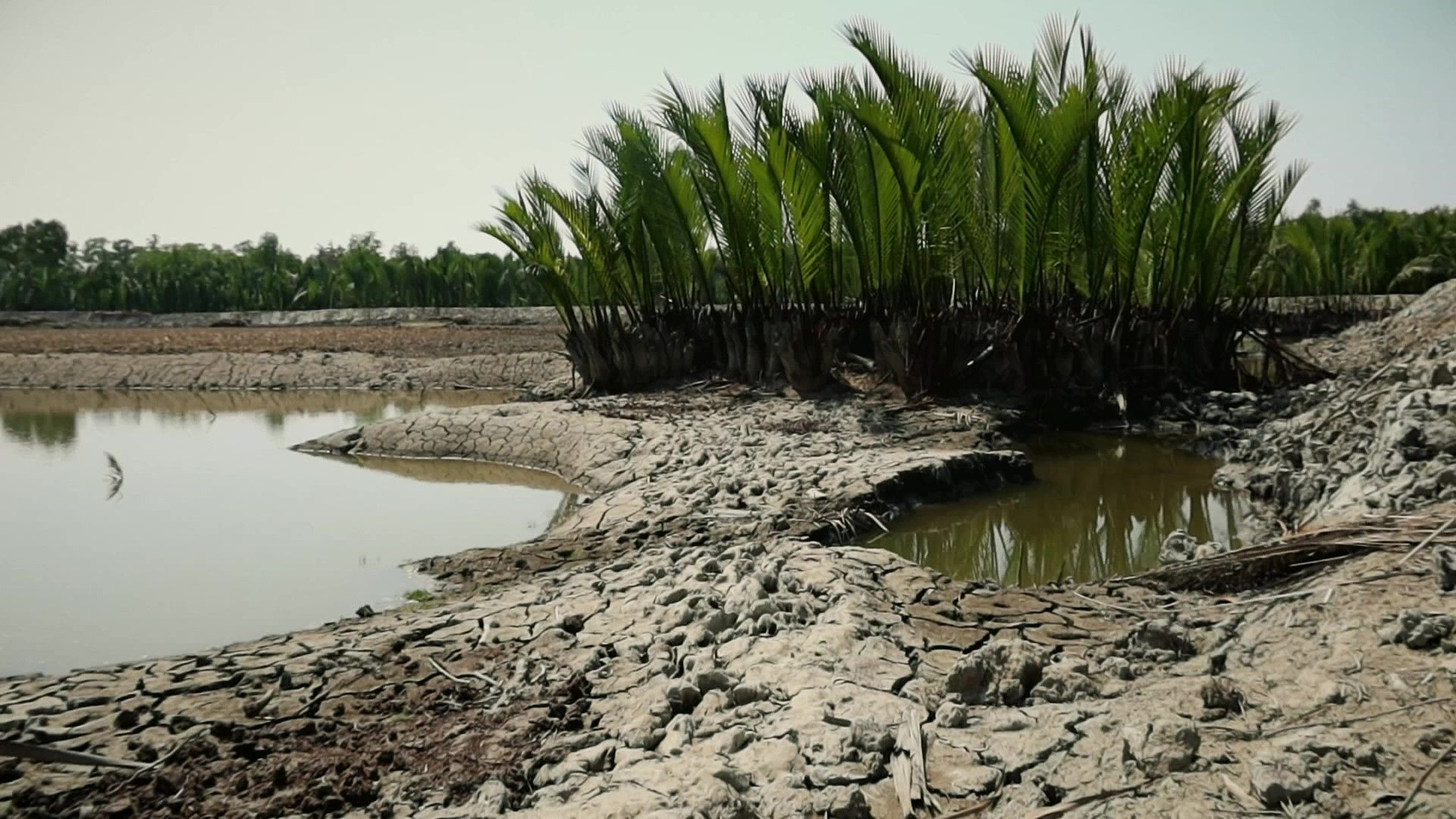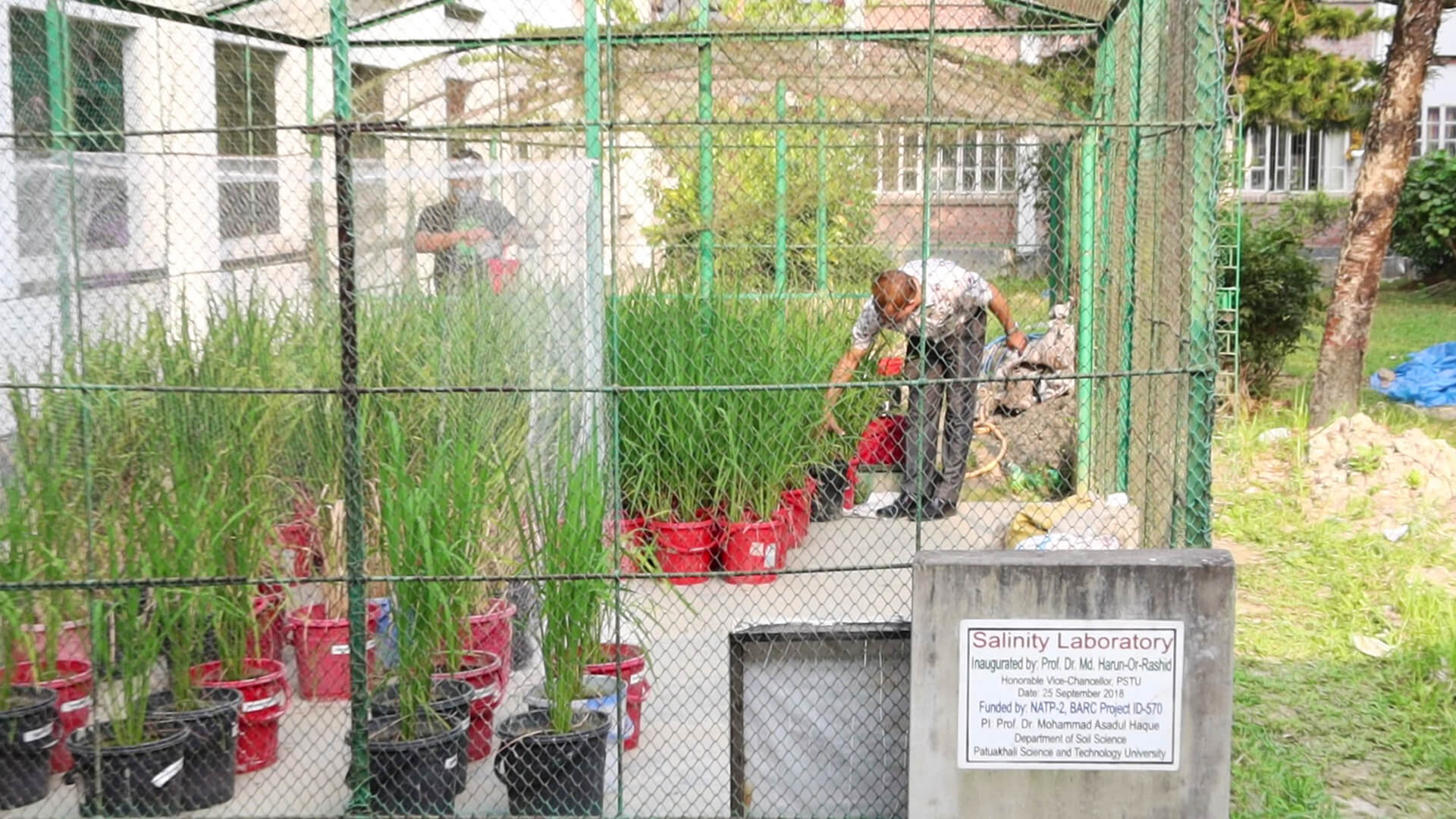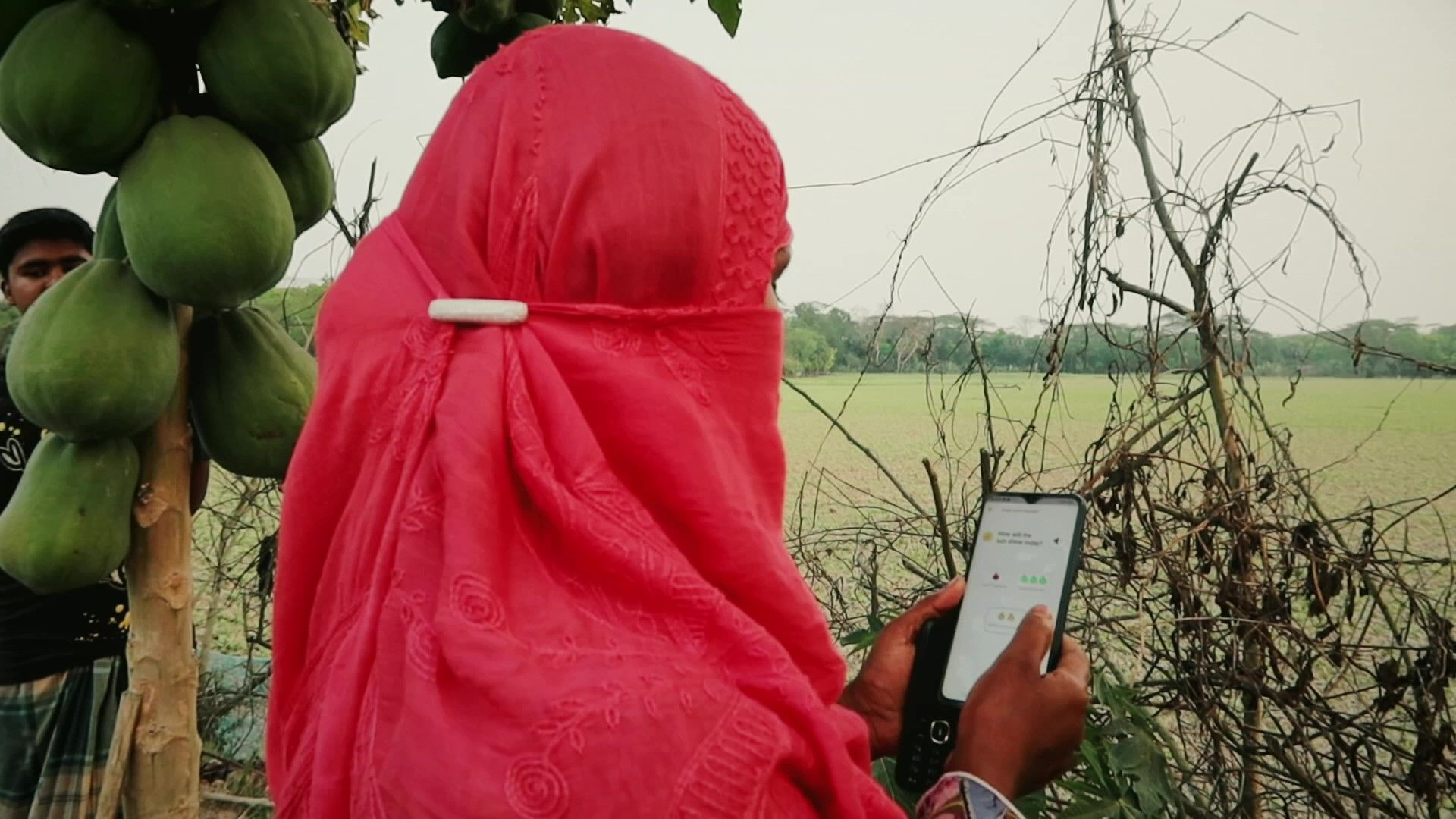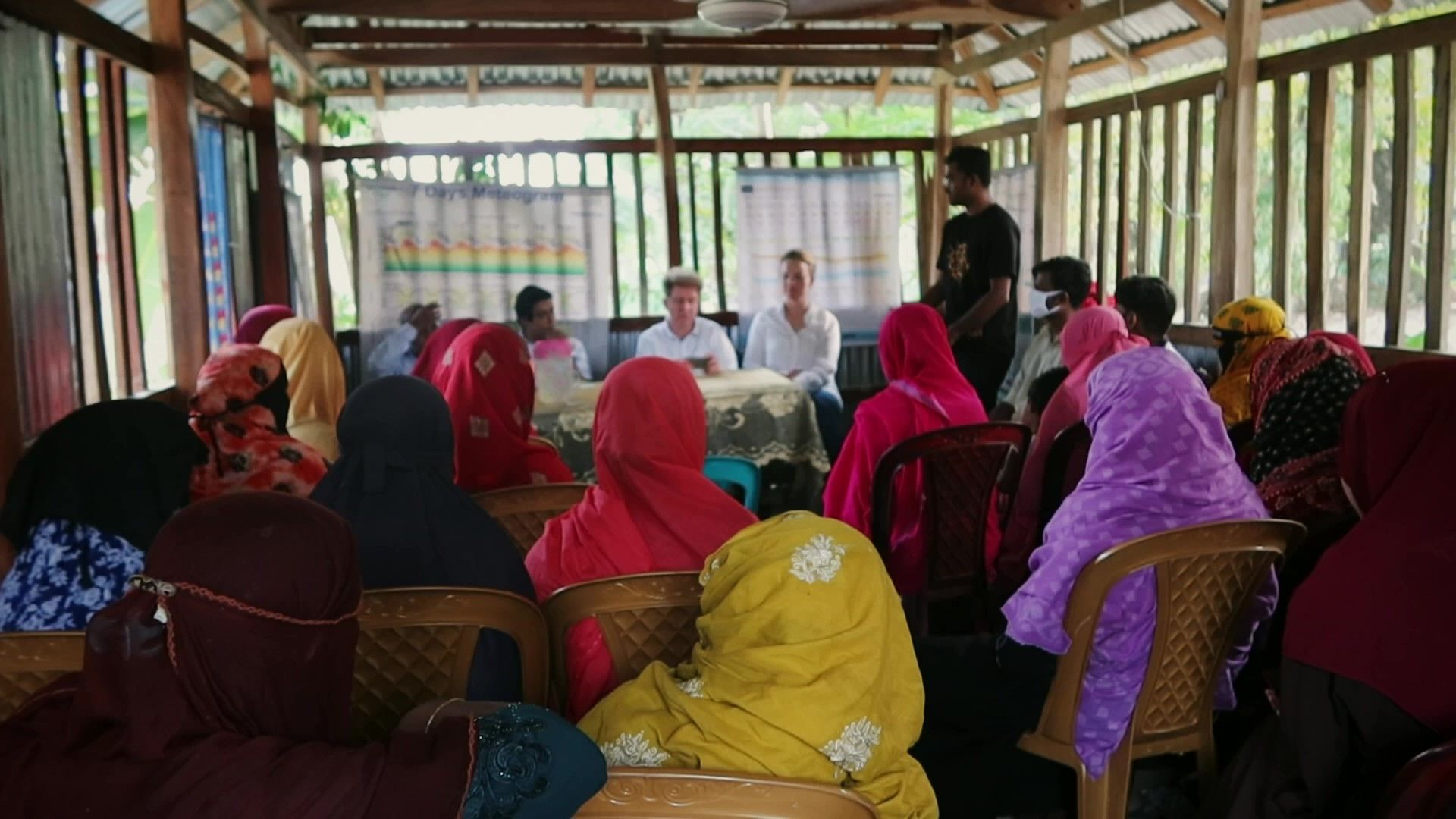The decline in agricultural production in Bangladesh due to climate change calls for research and adaptation. Research institutes from Bangladesh and the Netherlands have joined forces to share knowledge and develop agricultural practices that help farmers endure the changing climate.
Bangladesh, with its abundant greenery, meandering rivers and sprawling coasts, is renowned for its people’s harmonious relationship with nature. However, the country's agricultural sector faces significant threats from the adverse effects of climate change.
Saltwater intrusion, extreme heatwaves and prolonged droughts have become recurrent challenges, rendering many traditional crops unable to thrive or even survive in these new conditions.
Highlighting the pressing concerns, Md. Jahirul Islam, a farmer in the coastal town of Alipur, says, “Erratic rainfall patterns pose significant problems, and extreme climatic events are responsible for substantial losses. Additionally, pest attacks have intensified due to these unpredictable weather patterns.”
To combat these challenges and secure a sustainable future for agriculture, it is crucial to adapt and embrace new practices suited to the changing circumstances. The collaboration between Bangladeshi and Dutch knowledge institutes marks a significant step in this direction, developing and implementing climate-smart agricultural practices for a resilient coastal Bangladesh.

Collaborating for climate-resilient agriculture
The ambitious project, named RECSA – short for Climate Smart Agriculture for a Resilient Coastal Bangladesh – brings together a consortium of esteemed partners, including Patuakhali Science and Technology University, Wageningen University & Research, International Maize and Wheat Improvement Center (CIMMYT) – an international non-profit agricultural research organisation, Acacia Water – an organisation that develops sustainable solutions to ensure water security, and The Salt Doctors – an organisation that develops sustainable farming systems.
These organisations decided to bring together their expertise and resources to gain knowledge, conduct innovative research and develop sustainable agricultural practices that can withstand the changing climate patterns. Nuffic, the Dutch organisation for internationalising education, anchors the RECSA project, being implemented with financial support from the Dutch Ministry of Foreign Affairs.
The overarching goal of the RECSA project is to build resilience in coastal agriculture, ensuring long-term food security for the people of Bangladesh. Climate-smart agriculture is the guiding approach for this initiative. It aims to transform agricultural systems by reducing greenhouse gas emissions and by promoting climate adaptation strategies, to enhance overall food security.
Prof Dr Fulco Ludwig, the coordinator of the RECSA project at Wageningen University & Research, expresses optimism about the collaboration, stating, “This project marks the beginning of a fruitful partnership with Patuakhali Science and Technology University. We share a common vision and values, making this collaboration all the more promising.”
Focus on research
Through extensive research, the RECSA project aims to enhance knowledge, and build the capacity of local farmers, students and scientists in climate-smart agricultural practices. The project also facilitates the initiation of new research projects, with a particular focus on identifying alternative crops that demonstrate resilience to climate change-induced stresses.
Exemplifying this research focus Prof Dr Shamim Mia, a researcher at Patuakhali Science and Technology University, says, “By studying soil variations, we can identify drought-resistant crops that flourish even in arid conditions. Additionally, we are exploring the cultivation of salt-tolerant crops, enabling farmers to utilise their land effectively during dry seasons and improve overall food security.”

Weather information app to the rescue
One of the critical aspects that the RECSA project addresses, is the management of plant diseases, which have been exacerbated by climate change. The mobile application that provides location-specific weather information and forecasts helps farmers implement preventive measures against rice diseases and minimise yield losses.
Assistant professor Moriom Akter Mousumi of the Patuakhali Science and Technology University, emphasises the advantages of climate information services and weather forecasts for farmers. “With accurate weather predictions, farmers can schedule pesticide and fertiliser applications effectively, ensuring optimal utilisation and reducing financial losses. This information serves as a valuable asset for them,” she says.
The RECSA project also places a strong emphasis on empowering women farmers through various farmer field schools and training programmes. “Before the introduction of climate information services, I often faced challenges due to unpredictable rain. However, with the help of the app, I can now plan and optimise the use of seeds and fertilisers, eliminating financial losses,” says Irani Begum, a participant in one of these programmes.


Left: Irani Begum showing the weather information app. Right: women farmers attending farmer field schools and training programmes. Photos: WUR
Towards a resilient future
Recognising the significance of this initiative, Patuakhali Science and Technology University has established a dedicated department for climate-smart agriculture to nurture community-led agricultural initiatives.
Prof Dr Md Alamgir Kabir, the project director of RECSA at Patuakhali Science and Technology University, expresses gratitude for the support received and acknowledges the positive impact on students.
“The establishment of this building, made possible through funding from Nuffic Neso (Netherlands Education Support Office), has greatly benefited our students, who have the opportunity to receive face-to-face training from esteemed researchers at Wageningen University & Research,” he says.
Through collaboration with farmers, researchers and coastal communities, the RECSA project endeavours to build long-term resilience that can withstand the effects of climate change in Bangladesh.
By combining knowledge, innovation and sustainable practices, this collaborative effort strives to improve the lives of people, secure food production and create a brighter, more resilient future for coastal Bangladesh.
Climate-smart agriculture for a resilient coastal Bangladesh.




